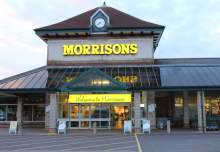The lesson here is that supermarkets tinker with Fairtrade at their peril.
However one of the more concerning aspects of this whole episode is that shortly after the Sainsbury’s decision came that Tesco would also be dumping the Fairtrade mark, in favour of the Rainforest Alliance scheme, which has weaker commitments on workers rights and fails to set a minimum price to protect farmers from market fluctations.
Plus last autumn Cadbury’s announced that they’d be launching their own cocoa certification scheme and downgrading the Fairtrade mark.
Inevitably this has led some to claim that Fairtrade is in crisis
Leading the calls were the usual suspects: the Adam Smith Institute and the Institute for Economic Affairs, both hard-right, free market think-tanks that have spent the past 20 years attacking Fairtrade at every opportunity.
The reality is that these calls are little more than hysterical hype.
With annual sales of around £1.5 billion and a healthy growth of 8% a year, the UK’s Fairtrade market can hardly be described as being on its knees and facing imminent collapse.
The protests against Sainsbury’s illustrates just how important Fairtrade is to shoppers and demonstrates a brand loyalty that many corporates would die for, and this wasn’t lost on some of Sainsbury’s more ethical competitors.
Hot on the heels of the Sainsbury’s calamity came the news that Waitrose would be extending its commitment to Fairtrade produce by converting all its own-label tea to Fairtrade by this autumn.
Clearly eyeing an opportunity to steal a march on Sainsbury’s, Rupert Thomas, Commercial Director at Waitrose, said:
“We’re proud supporters of the Fairtrade Foundation and have seen first-hand their strong track record of supporting farmers who most need it.”
Then in a welcome show of solidarity, members of the Co-op supermarket voted overwhelmingly to continue their backing of Fairtrade at their AGM.
Speaking to the Grocer, a Co-op spokesperson said:
“As a long standing Fairtrade champion we will continue to provide our customers with the opportunity to support farmers through offering as wide a range of Fairtrade marked products as possible.”
One issue which this sorry affair has brought into sharp relief is whether supermarkets are necessarily the right and proper home for Fairtrade produce.
“The big supermarkets offer a huge market but it’s a high risk strategy,” says a Fairtrade industry insider who spoke to Ethical Consumer and who didn’t want their identity revealed.
“‘Fairtrade companies should always enter into a trading relationship with a supermarket with their eyes wide open to the risks. Fairtrade companies know that they can get a phone call tomorrow from a supermarket saying that we’ve done a review and you’re off the shelf.”
However many rightly argue that getting Fairtrade products into our biggest supermarkets has helped to mainstream Fairtrade which in turn has benefited thousands of farmers and their families from Ghana to Nicaragua.
So where does this leave the ethical shopper?
Whilst some supermarkets do appear to be genuine in their support for Fairtrade, most notably the Co-op and Waitrose, ethical shoppers may want to give supermarkets a miss and instead buy their Fairtrade coffee and tea from the natural home of Fairtrade: their local independent wholefood shop.






